Hello friends, welcome! If you want to join & explore how we see the world, subscribe below:
You can check out my other articles and follow me on Twitter too!
What differentiates exceptional people from regular people?
Some say wealth.
Others say talent or hard work.
Each of these can be true to an extent, but my two cents?
Compounding.
Compound - To intensify by an added element.
Think of compounding as the equation:

Effectively, compounding takes previous results and then combines that to your current effort and multiplies that to get your results.
Take learning to ride a bike.
Each of the times you scraped your knee and fell over when you stopped pedaling; those are your previous results. Your current effort is trying to ride the bicycle right now. And your leverage is the training wheels which allow you to go further each time you ride, amplifying each of your tries.
Repeat a 100 times and you’ve learned how to ride a bike.
With all of the buzz around Olympian athletes, brilliant scientists, and billionaire tycoons of industry on social media & the news, it can be easy to slip into thinking that there’s some inherent quality that separates brilliant & talented people from “ordinary” people. They are talented and/or simply born this way! Look at how their mind works.
But no one’s born ever knowing how to ride a bike; it’s all learned. We don’t come into this world with pre-booted knowledge.
Einstein was not born with the knowledge of the General Theory of Relativity and neither was Newton with calculus. When they were born, they each had zip, zilch, nada between their baby brains and were bumbling around with soft dookies in their pants just like you & I.

How did Newton & Einstein excel then? How has any person successful in their craft succeeded? They developed a deep, abiding interest in their respective fields, worked hard and over time, compounded their efforts.
It’s these efforts each day, when compounded over weeks, months and years, that results in immense outcomes (winning the Olympic medal, becoming stupendously wealthy, achieving a scientific breakthrough, etc).
Consider getting 1% better each day. What would it take for you to become 1% better at say, writing? Maybe the first day, it’s writing 5 sentences in your iPhone Notes app before you leave the apartment. The second day, it’s writing an additional 5 sentences right before you leave work. The day after that, you write down the topic of tomorrow’s morning paragraph the night before. If you keep implementing these small tweaks, how much do you think you’d improve over a year?

Over 37 times better.1 That’s wild.
There’s two components at play: the effort ( the 1% better) and also the time period (each day). Unlike money, if you leave a pile of knowledge unused for too long, it degrades; you begin to forget things.
It takes doing that thing over and over and over again until your brain-muscle memory kicks in and you are able to perform at a higher level. The reason is that our brains are not evolved for perfect memory recall. We’re not digital computers, more like “if I can have mate with it, eat it or it’ll harm me, I’ll remember it” kind of computers.
Much of our higher mind interests like mathematical equations, computer science data structures, physics phenomena and musical talents don’t really fit among those innate needs.
Similarly, our bodies are not designed to adapt instantly to a single stimulus but rather require consistent and increasing stimulus to grow muscle.
If you hit the gym once a month, physically or intellectually, you aren’t getting any gains.
And what happens when you combine this steady improvement with consistency over a longer timeline? Skills emerge.
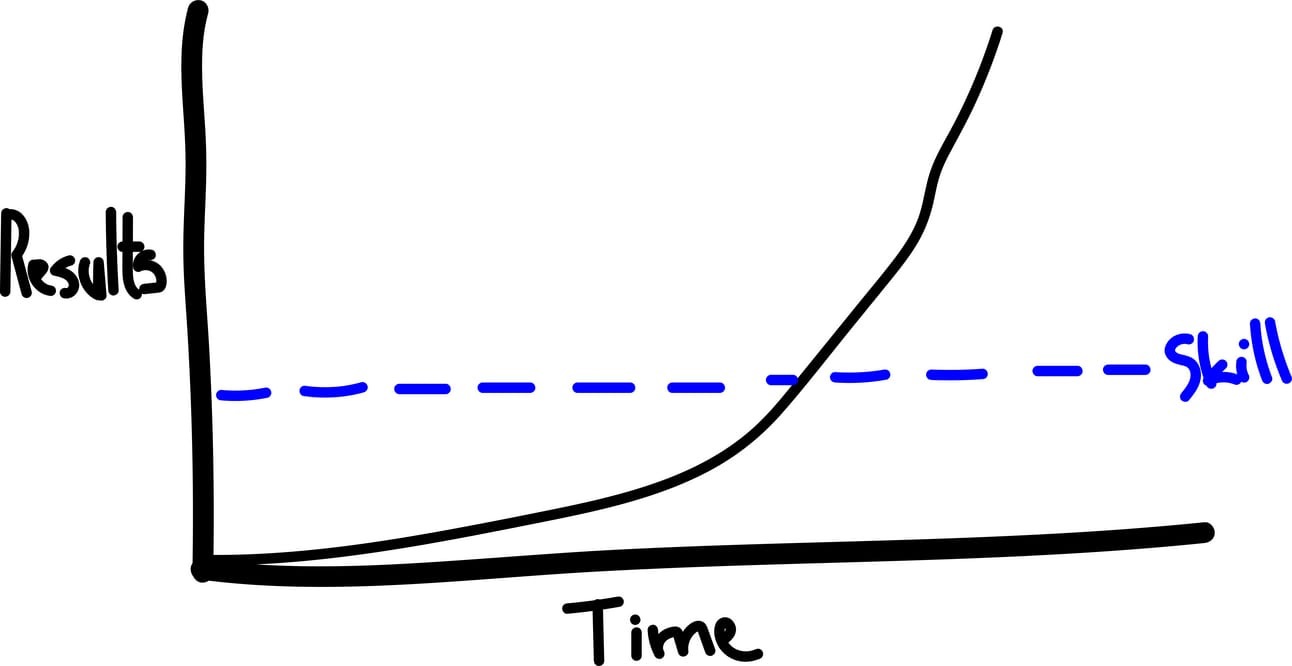
Ever see a baby learn how to walk? They struggle; staggering around with on their pudgy limbs, falling quite often. It takes quite a bit of work to learn how to walk & now you do so effortlessly. You’ve acquired the skill of walking.
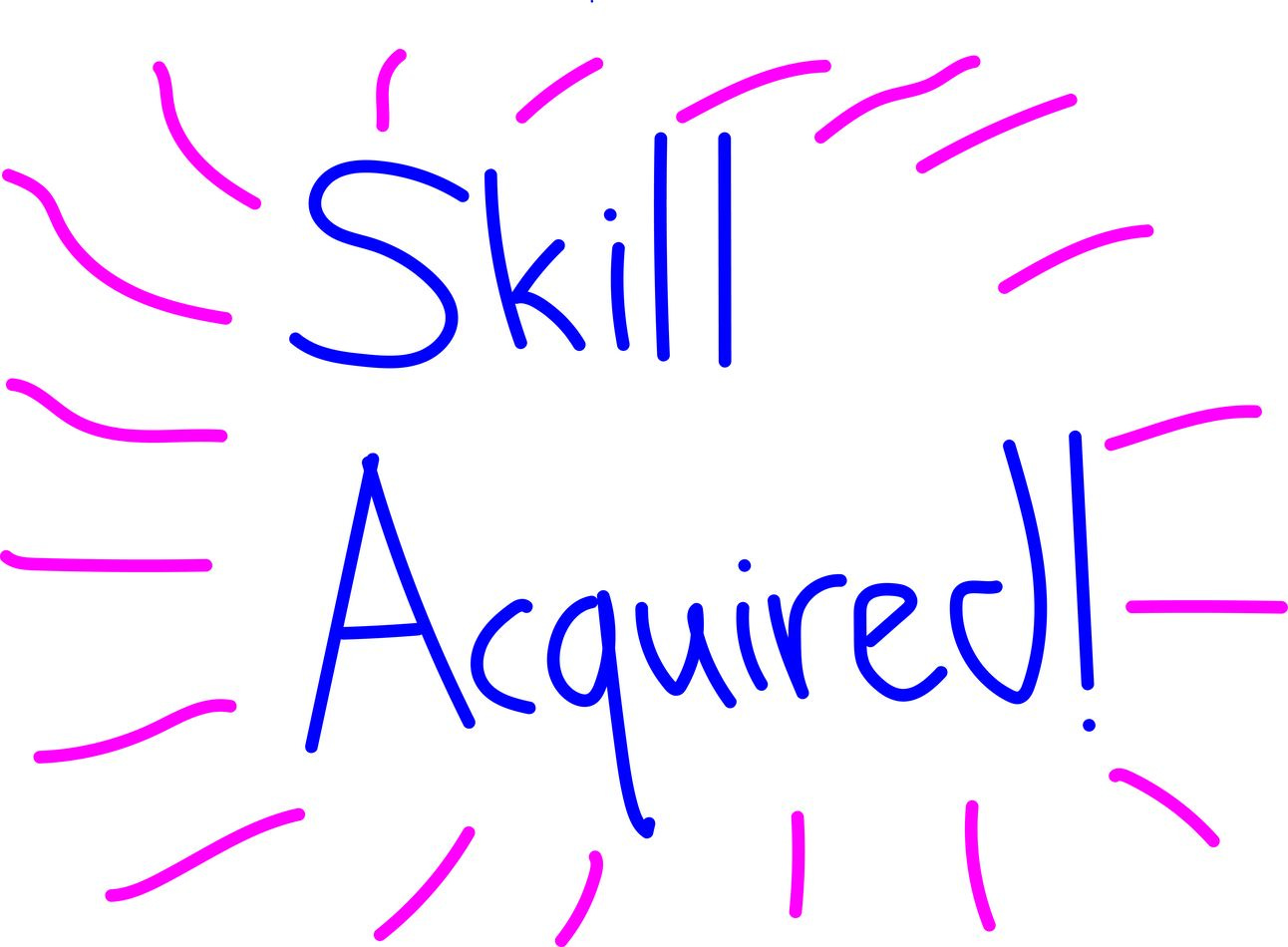
You experience this on a daily basis when you talk, text, or calculate a tip; these are all skills you’ve acquired over time.
But what happens when different areas of life bleed over each other and start compounding?
For that, we need a guy I know called Jerry (not his real name).
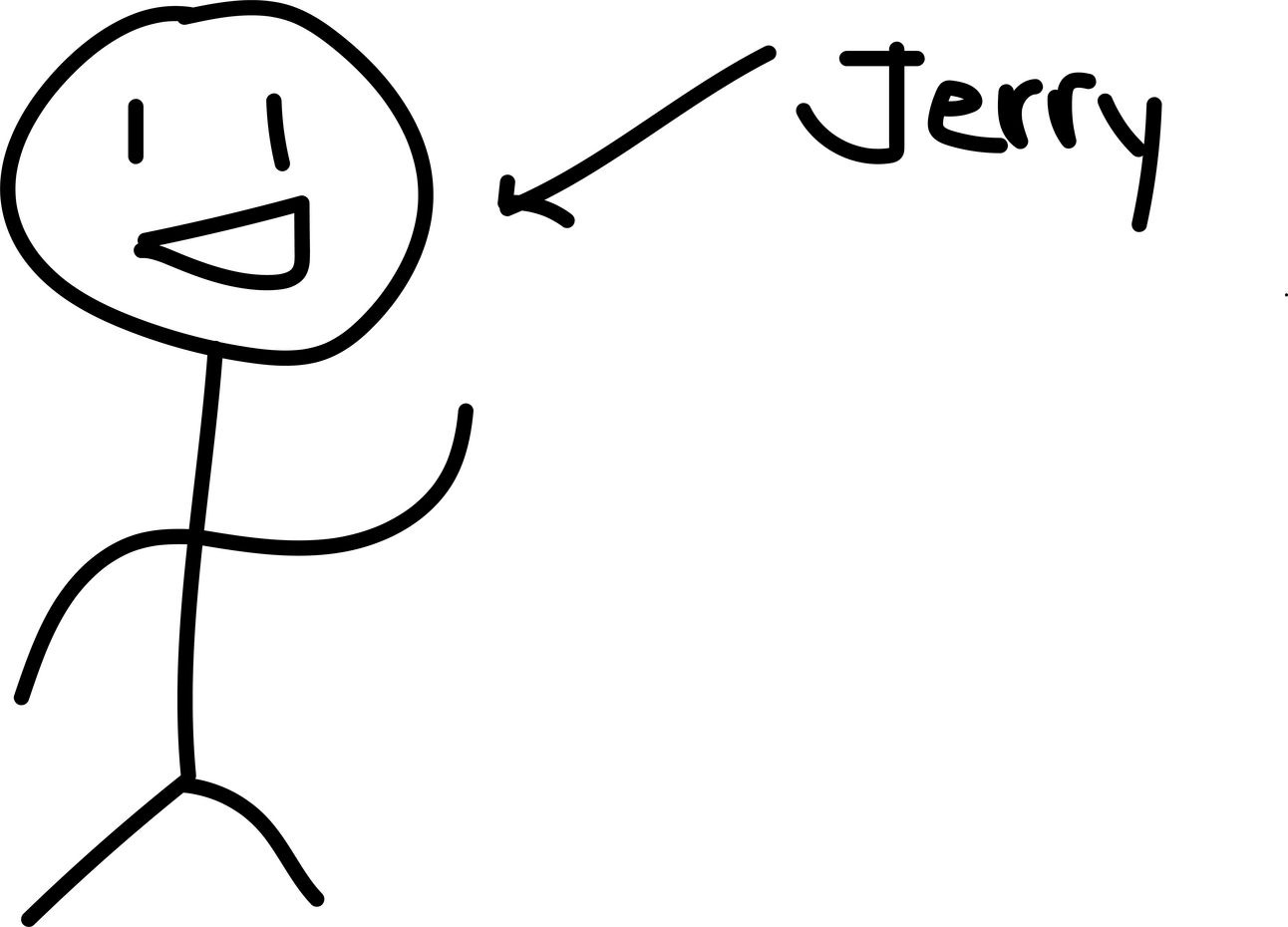
Jerry’s a cool, empathetic guy; he’s gracious with everyone, people enjoy talking to him and he can tickle the ivories quite well. But Jerry’s got a superpower that most other people don’t have.

Jerry’s a master engineer.
He has a wide understanding of physics, mathematics, computer science, and electrical engineering. He can tackle tough problems in each of these spaces and does so often with a high degree of proficiency.
Since Jerry has the ability to understand problems in their own context, he’s also able to see and approach problems from a variety of viewpoints. All of his compounded areas of knowledge have seeped across their subject boundaries and crossed over each other; meta-compounding is taking place.
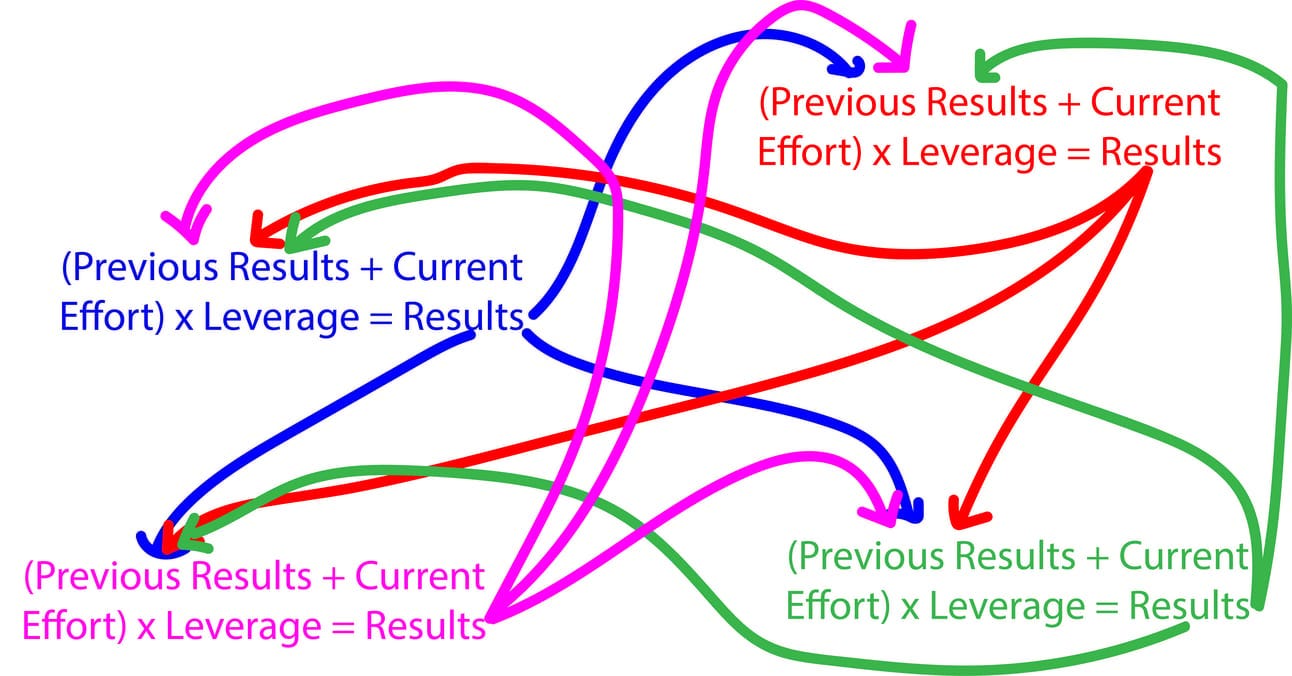
In meta-compounding, the expertise that you have gained in various areas of life and subject matters begin to interact with one another; amplifying each other, accelerating growth. Additionally, you begin forming not-so-obvious connections and gaining insights that you never would have been able to make otherwise.
Suddenly, you can relate how musical notes are related mathematically and when tackling a computer science problem, you can see how it relates to the domain of physics. You can solve a mathematical equation on paper and deploy that same equation on a computer system.
And just as compounding produces skills, meta-compounding produces meta-skills.
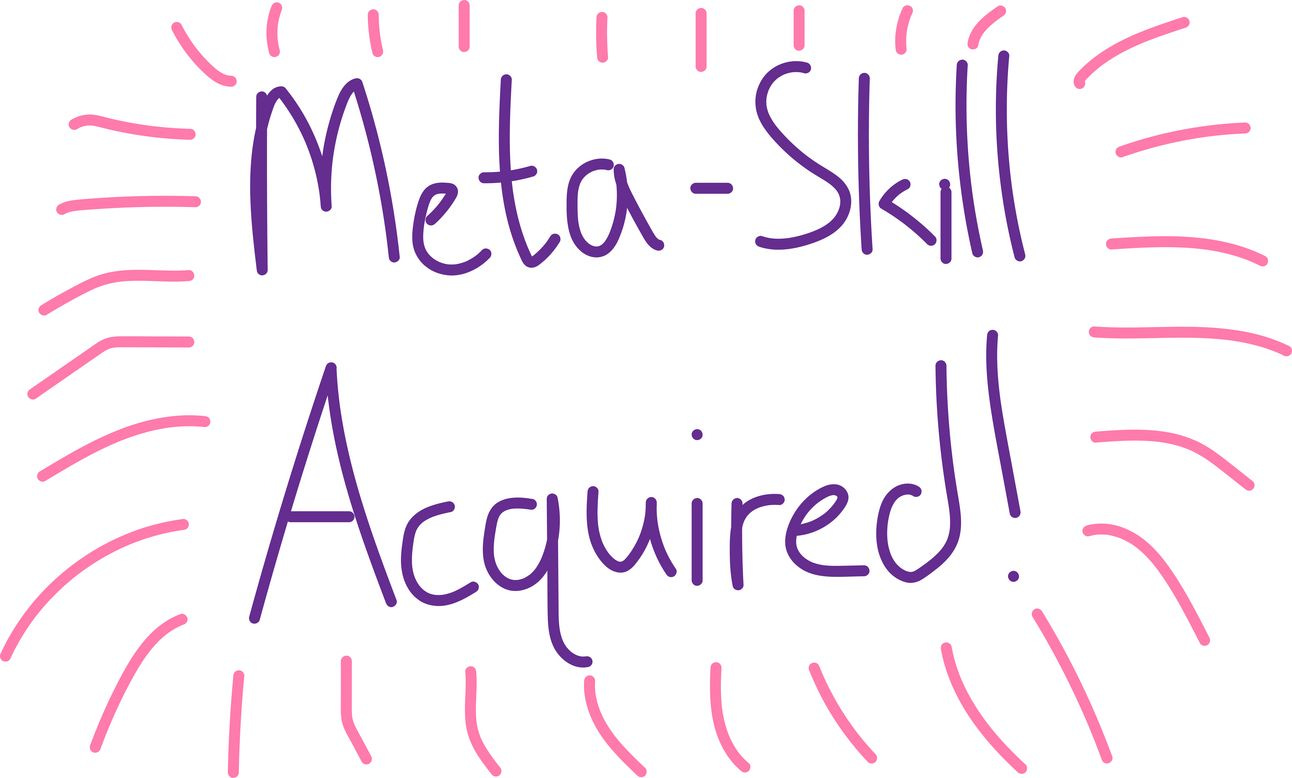
In many ways, it’s like a car. The individual components of a car are functionally useless for transportation (steering wheel, car engine, tires, gasoline, car body, etc) but when you put them together, you get a Toyota Camry!
Meta compounding has given Jerry the engineering ability to take problems from theory on paper to the real world.
This is not unique to technological fields but rather can applied across any field, any area of life. Meta-skills are powerful and the more areas that compound, the more unique and distinct they become.
A dancer may be common, a ballerina less so. A ballerina that’s also a physicist? Even less common. A ballerina that’s also a quantum physicist? Pretty rare. How about a quantum physicist/ballerina who dances with her robots? Unique; many areas have compounded and now something distinct has emerged.
Personally, I think focusing on developing areas of your life that matter to you and allowing them to compound is one of the greatest gifts you can give yourself.
You’re doing the things you like, improving on them, and then just like a game, new skills get unlocked; the quest of life deepens in flavor.
And that’s the gift I am trying to give myself. This is my 14th post, but imagine what my 24th post will be like? How about my 52nd? My 100th?
Let the compounding begin. 😈
- Kiran
From James Clear's Atomic Habits.
If you liked this piece, make sure to subscribe by adding your email below!



